Days ago we decided that given our possession of the legal opinion regarding the pension scheme’s amendment which was already voted on anyway, and given professional/legal profession privilege (which we suppose or interpret as meaning that the EPO cannot under any circumstance sniff out the document, which it already has anyway), there’s no longer any point to postponing the release, as text, of the 20-page document noting that the EPO’s amendments are weird at best and futile at the very least. Maybe the document is too long for one to actually bother reading, so we encourage people to read the conclusions part only (starts in page 19, where horizontal lines are representative of page breaks).
Below are 20 pages compacted into a single Web page. This opinion has been given to help dissect changes that impact the lives of existing, former, and future staff of the EPO.
OPINION
RE: THE PROPOSED AMENDMENTS TO THE
PENSION SCHEME REGULATIONS
CA/93/15
TO THE STAFF UNION
OF THE
EUROPEAN PATENT OFFICE
1. INTRODUCTION
1.1 We have been instructed by the Staff Union of the European Patent Office (‘SUEPO’) to produce an opinion in respect of proposed amendments by the President of the European Patent Office (‘the President’) to the system of compensation for taxation on pensions of former EPO staff members.
1.2 The relevant circular is CA/93/15, dated 5th October 2015, which was submitted by the President to the Budget and Finance Committee (for opinion) and the Administrative Council (for decision). Since the initial instruction, it has emerged that the circular has been resubmitted after having been amended and as such, CA/93/15 Rev.1 must also be considered.
1.3 There have been a number of historical changes to the Pensions system at the EPO, with reviews taking place in 1977 and 1989 and changes being made in 2006 and 2008/09. More recently, in December 2014, the Administrative Council decided to reintroduce the former tax adjustment in lieu of the lump-sum payment as partial compensation for national taxation of pensions. The amendments relate specifically to Article 42 of the Pension Scheme Regulations and the relevant Implementing Rules. These amendments are described as having been introduced ‘as an immediate measure in view of the need to provide a timely solution to the practical deficiencies of the [partial compensation system]’.
1.4 The rationale for the current proposed amendments to the tax adjustment system is stated by the President as being to ‘better align the calculation method with the purpose of the system, while maintaining an adequate level of administrative efficiency.’ A majority of three quarters of the votes is necessary to effect the changes.
1.5 Both SUEPO and the Association of European Patent Office Pensioners produced commentaries on Document CA/93/15, in which they considered the proposed amendments from their respective positions.
2. BACKGROUND
2.1 The European Patent Office is an international organisation and as such, it enjoys a number of immunities from the laws of its host nations. However, Article 16(2) of the Protocol on Privileges and Immunities of the European Patent Organisation states that pensions do not fall within these immunities and as such, are subject to national income tax.
2.2 Article 42 of the Pensions Scheme Regulations of the Office provides for a tax adjustment payment to partly compensate staff members who joined the office before 1st January 2009 for national income tax levied on their pensions, those staff members having been ‘grandfathered’ through previous amendments. The amount of this compensation is calculated by reference to tables of equivalence which are established for each tax year and Member State by the International Service for Remunerations and Pensions (ISRP) – a service provider which deals with the six Co-ordinated Organisations and other international organisations. The tables of equivalence are based on information provided by national tax
authorities which state the theoretical national tax levied on pensions.
2.3 The rationale for making the further proposed amendments is stated as being to ‘better align the calculation method with the purpose of the system, while maintaining an adequate level of administrative efficiency’. Specifically, concern is expressed that the theoretical sum calculated may give rise to a discrepancy between the amount paid by the pensioner and the compensation paid by the EPO, such that this may constitute ‘additional income’. The proposal purports to aim both to mitigate the ‘undesired effects’ of the system whilst at the same time, maintaining its advantages and having regard to pensioners’ need for stability.
3. ACQUIRED RIGHTS
3.1. Whilst the position in respect of acquired rights is well rehearsed, the subject is worth considering briefly, before moving onto other areas of concern. The doctrine of acquired rights was developed by the ILOAT as a means of determining which terms of the relationship between staff members and their
employer may and may not unilaterally be amended by the organisation1. The relevant test was set out by the ILOAT in the leading case of Lindsey2 in which it said the following:
“The terms of appointment of international civil servants and, in particular, those of the officials of the Union, derive both from the stipulations of a strictly individual character in their contract of appointment and from Staff Regulations and Rules, which the contract of employment by reference incorporates. Owing, inter alia, to their increasing complexity, the conditions of service mainly appear not amongst the stipulations specifically set out in the contract of appointment but in the provisions of the above-mentioned Staff Regulations and Rules. The Staff Regulations and Rules contain in effect two types of provisions the nature of which differs according to the objects to which they are directed. It is necessary to distinguish, on the one hand provisions which appertain to the structure and functioning of the international civil service and the benefits of an impersonal nature and subject to variation, and, on the other hand, provisions which appertain to the individual terms and conditions of an official, in consideration of which he accepted appointment. Provisions of the first type are statutory in character and may be modified at any time in the interests of the service, subject, nevertheless, to the principle of non-retroactivity and to such limitations as the competent authority itself may place upon its powers to modify them. Conversely, provisions of the second type should to a large extent be assimilated to contractual stipulations. Hence, of the efficient functioning of the organization in the general interest of the international community requires that the latter type of provisions should not be frozen at the date of appointment and continue so for its entire duration, such provisions may be modified in respect of a serving official and without his consent but only in so far as modification does not adversely affect the balance of contractual obligations or infringe the essential terms in consideration of which the official accepted appointment.”
Emphasis added
_____
1 The equivalent concept at the World Bank is that of ‘fundamental and essential’ terms and conditions of employment as established in the leading case of de Merode, which was the first case of the World Bank Administrative Tribunal.
2 ILOAT case 61 Linsdey (1962)
3.2. In apply this doctrine, the ILOAT has drawn a distinction between the amendment of terms in respect of which staff members have acquired rights on the one hand, and the amendment of the method or ‘modalities’ which appertain to the performance or delivery of the term or condition to which the staff member has acquired a right. Where the proposed amendments relate to the modalities – that is to say, to those terms which are of an impersonal nature – then, it is often held that organisations may make amendments to them, although each case turns on its own merits. Aware of this, organisations often seek to make changes to the methodology, rather than attacking the right itself; one such example might be to amend the way in which a particular benefit is calculated or provided.
3.3. However, there would seem to be a considerable lacuna in the reasoning of the ILOAT and consequently, the case law, in the situation where the proposed amendments to the method or ‘modalities’ are so great that they might properly be said to amend the term itself. At what point are amendments to the methodology for calculating a benefit, or indeed, compensation, so great that they have the effect of upsetting the balance of contractual relations, or of amending the essential nature of a term, in consideration of which, an official accepted appointment? By way of a basic example, consider the situation where an education allowance is calculated prior to amendments and on that basis, provides for a sum of €100,000 to be paid to the staff member; but after the methodology for calculation is changed, the sum falls to €1,000. It is patently nonsensical to argue that this is merely a change to the modalities for calculation and therefore, that it does not infringe on the staff member’s acquired rights; on the contrary, the changes to the methodology are themselves the means by which the acquired right is taken away, albeit under the pretense of a mere amendment to the method for determining the sum of the education allowance. The reality is, that such a change has had the effect of changing – fundamentally – one of the key things in consideration of which a staff member accepted employment and in the process, has upset the balance of contractual relations between the organisation and the staff member.
3.4. The cases of Lamadie (No.2) and Kraanen3 clarify that the test is applied on an objective basis, that is to say, would the provisions under consideration induce the mind of an ordinary applicant, when he was considering joining an organisation, to accept that offer? This is as opposed to that of the Applicant in the case, viewed on a subjective basis.
3.5. Having regard to the example above, the argument to be brought by SUEPO in this instant case would be to address this lacuna. The pensions adjustment represents a significant portion of pensioners’ remuneration and, when compounded by the in-built delay in applying the adjustment and its now apparently circular application, which has the effect of further reducing the amount of the adjustment (cf. paragraph 7.7, below), one might argue that it is questionable whether the pensioner is getting the adjustment to which they are entitled at all.
3.6. It is undoubtedly of some concern that the proposed amendment set out in CA/93/15 came shortly after earlier changes in December 2014, for several piecemeal alterations made over the years may well be indicative of a creep towards more wholesale modification which, if they had been made at once, ‘might upset the balance of contractual obligations’ between the EPO and its Staff Members and thus have been frustrated by virtue of the doctrine of acquired rights.
4. CONSULTATION
4.1. The EPO enjoys functional immunity from legal suit; as a consequence, in the normal course of affairs, its staff members have no recourse to national courts4. For this reason, procedural regularity takes on particular significance in international organisations – a point that is made by Amerasinghe5. Adherence by the Organisation to its Regulations is fundamental to protecting the rights and interests of its staff members. As such, failures in respect of the consultative
_____
3 Lamadie (No.2) and Kraanen ILOAT Judgment No. 365 [1978] (IPI/EPO)
4 The importance of consultations, engaging with staff and providing access to a proper remember have been demonstrated by the lifting of the immunities of the EPO by the Dutch courts – a decision that was confirmed by the Court of Appeal.
5 Amerasinghe, C.F., The Law of the International Civil Service, 2nd Ed, OUP 1994 at page 366
process may amount to procedural irregularity giving rise to a cause of action in
itself.
4.2. Article 38 of the Service Regulations (November 2015) sets out provisions in respect of the General Consultative Committee. This Committee might properly be thought of as the main forum for participation by staff members in proposed changes to the terms and conditions of employment which affect them and their colleagues. Article ‘(1)’ states that:
“The General Consultative Committee shall consist of:
- the President of the Office as Chairman. The President may delegate his chairmanship;
- all full members of the Central Staff Committee and in their absence their alternates;
- an equivalent number of full members appointed each year by the President of the Office and in their absence their alternates.”
4.3. Article 38(2) provides that:
“The General Consultative Committee shall, in addition to the specific tasks given to it by the Service Regulations, be consulted on:
- any proposal to amend these Service Regulations or the Pension Scheme Regulations, any proposal to make implementing rules and, in general, except in cases of obvious urgency, any proposal which concerns the conditions of employment of the whole or part of the staff to whom these Service Regulations apply or the recipients of pensions;
- any question of a general nature submitted to it by the President of the Office;
- any question which the Staff Committee has asked to have examined in accordance with the provisions of Article 36 and which is submitted to it by the President of the Office.”
By virtue of Article 38 (1) and (2) it is clear that there is a duty incumbent upon the President of the Office to Consult with, inter alia, the Central Staff Committee in respect of the proposed amendments to the Pensions Scheme Regulations, the regulations having been drafted using the imperative ‘shall’. In this instant case, no argument can be made in respect of ‘obvious urgency’ which might negate such a duty, for the proposed changes do not arise from ‘something unforeseeable’6 as would be required on the reasoning of the ILOAT in Judgment 1061. Furthermore, one may take from Judgment 3395 (applying Judgment 2919) that when the requirement for consultation is engaged, it must be meaningful and conducted in good faith.
4.4. The logical and proper order for consultation would have been for the first document – CA/93/15 – to have been submitted to the GCC, after which, their opinions, proposals and amendments could be submitted to the Budget and Finance Committee (‘BFC’) for consultation “on all questions submitted to the Administrative Council in which the financial implications have to be taken into consideration” as is mandated by Article 6 of the Financial Regulations. Yet reference to the timeline of events in respect of this matter belies any claim that proper consultation has taken place, for the order has in fact been reversed. The BFC convened on 22nd October 2015, while the GCC was later ‘consulted’ for less than two hours on 23rd November 2015. As a consequence, the BFC was blind to any amendments that followed and further, the GCC was rendered incapable of considering any amendment which would have a financial implication, the BFC having already sat. Moreover, compounding the existing lack of meaningful consultation, a second incarnation of the document – CA/93/15 Rev.1 – was produced. This has not and will not now be considered by either of the GCC or the BFC. The inclusion of illustrative tables in the latter document demonstrates vividly the fundamental lack of understanding of how this proposal will work in practice: indeed, had they been included in the first paper, then this may well have given council members pause for thought, for the simplistic examples provided only serve to highlight the lack of actuarial modeling and the difficulties that will arise for pensioners trying to apply the proposed system. Further, the insertion at paragraph 15 of Part 1 states:
_____
6 ILOAT Judgment 1061
“As a result, the tax adjustment would be calculated on the basis of the pensioner’s actual income tax taking into account all sources of income, but it could not be higher than the theoretical amount determined as per the tables of equivalence.”
This addition is clearly directly contradictory to Article 42 (3) which states, inter alia, that:
“No account shall be taken of:
- individual factors related to the personal circumstances or private means of a particular pensioner,
- income other than that arising under these Regulations,
- the income of the spouse or dependents of the pensioner.”
The additional paragraph 15, if it had been seen by the GCC, would surely have given rise to questions and concerns in respect of this apparent contradiction and flaw in logic in the way the system is to be operated.
4.5. Extraordinarily, it is clear that this proposal has been drawn up without any real consultation of the EPO Pensioners’ Association, which brings into question the validity of any consultation thus far. On 24th November, the Chairman of the Association was invited by the Office to a meeting on 30th November. The purpose of the meeting was not disclosed and two further requests for, notification of the purpose of the meeting, together with access to any papers for it, were ignored. Only at the start of the meeting was the Chairman informed that the purpose was to get the Association’s input on the revised document CA/93/15 Rev.1. It would seem that this was little more than a box-ticking sham consultation, in which the process has been engineered so as to stifle any meaningful feedback from those affected. This would, of course, be even more significant an issue in circumstances where there is an explicit agreement or undertaking by the President to consult the Association: indeed, such circumstances, if they did in fact apply, would appear to give rise to a case of procedural irregularity.
4.6. The importance of consultation with the Staff of the EPO is all the more pertinent given the recent historical tensions between the President of the Office and the Staff. Indeed, proper consultation is there as a means of ameliorating concerns about prospective changes and enabling the Office to achieve its stated aim of ‘maintaining the advantages of the current system…[whilst] bearing in mind the pensioners’ need for stability’. Yet actions speak louder than words and the course adopted by the Office suggests that this objective might more accurately be described as ‘lip service’, than a true statement of intent.
5. LACK OF DETAIL AND CLARITY
5.1. There is a significant lack of detail and clarity in the proposals. The frequent amendments to the pensions scheme regulations by the office in the past would seem to be demonstrative of a lack of genuine thought, consideration and consultation when it comes to making changes. This is all the more egregious for pensioners who, together with their families, should enjoy a certain level of stability, having worked and planned on the basis of the system that was in place. As the ILOAT put it in Judgment 3375 at Consideration 20:
“It is trite principle that an international organisation owes its staff members a general duty of care not to cause them undue hardships. Accordingly, the relations between an organisation and a staff member must be governed by good faith (see, for example, Judgments 2116, under 5, and 1526, under 3)”.
In this respect, it would seem that the Office is not exercising the requisite duty of care, which should be expected when dealing with reforms affecting staff, pensioners and their families.
5.2. Neither a comparative analysis nor detailed calculations have been carried out in order to study the impact of the amendments to the current system or the consequences which may flow from them. A simulation might quite reasonably be expected and should be carried out in parallel with the current system for at least one-year in order properly to consider the viability and desirability of the proposed reforms. Given that the main stated aim is to mitigate the undesired effect of
providing to some individuals a higher tax adjustment than the national income tax effectively paid – the implication being that this is an unjustified and unaffordable cost – the Office should provide evidence to quantify and justify the considerable additional costs that will be incurred in administering such a system, for it seems almost inevitable that these costs would vastly outweigh the alleged benefits. Indeed, it is striking that no information has been provided as to how many pensioners such overpayments are said to apply and further, that the very reason that such changes were not pursued in the past was exactly that which is missing from the proposal, namely, the costs associated with administering such proposals. The policy changes appear to be based on mere supposition and speculation rather than any evidence-based rationale.
5.3. Further, a pilot tax adjustment amendment would allow for the specific logistics to be worked out without adversely affecting the most vulnerable class of individuals with whom the office interacts. Precise sample calculations should be made on the amounts and incomes that will be taken into consideration to determine the adjustment; none of these issues are dealt with in CA/93/15 or CA/93/15 Rev.1.
5.4. Article 52 of the Pensions Regulations states in the imperative, that:
“Implementing Rules for giving effect to these Regulations shall be adopted by the Administrative Council acting on a proposal by the President of the Office and after consulting the General Advisory Committee.”
Yet the vagaries apparent in the proposals are supported only by the assertion of the Office7 that it will be – hitherto unnamed – ‘specialists’ who will determine the way in which the proposals are to be implemented, after they have been approved by the Council. Indeed, at the meeting with the Pensioners’ Association, the representatives of the Office were not able to answer a single question in respect of implementation – not even which entity has been tasked with the application of the amended system. In the absence of specific proposals and models, save for the very basic and simplistic examples provided in the paper, it may be possible to argue that the implementing provisions themselves are deficient and irregular.
_____
7 At the 30th November meeting with the Pensioners’ Association
5.5.
ILOAT Judgment 3324, which arises from a dispute at the World Customs Organization (‘WCO’), concerns a decision by the President not to implement a salary increase recommended by the Co-ordinating Committee on Remuneration of the system of Co-ordinated Organisations. Although that case concerns salaries and not pensions, the issues raised are, in many respects, analogous and it seems quite reasonable to apply the principles affirmed by the Tribunal in its judgment in case 3324, mutatis mutandis, to the case of pensions, for there is considerable cross-over in respect of the points in principle. Specifically, the Tribunal stated at Consideration 16:
“According to the case law recalled in detail in Judgments 1821 (under 7) and 1912 (under 13):
“The principles governing the limits on the discretion of international organisations to set adjustments in staff pay have been well established in a number of judgments. Those principles may be concisely stated as follows:
(a) An international organisation is free to choose a methodology, system or standard or reference for determining salary adjustments for its staff provided that it meets all other principles of international civil service law: Judgment 1682 [...] in 6;
(b) The chosen methodology must ensure that the results are “stable, foreseeable and clearly understood”: Judgments 1265 [...] in 27 and 1419 [...] in 30;
(c) Where the methodology refers to an external standard but grants discretion to the governing body to depart from that standard, the organisation has a duty to state proper reasons for such departure: Judgment 1682, again in 6;
(d) While the necessity of saving money may be one valid factor to be considered in adjusting salaries provided the method adopted is objective, stable and foreseeable (Judgment 1329 [...] in 21), the mere desire to save money at the staff’s expense is not by itself a valid reason for departing from an established standard of reference: Judgments 1682 in 7 and 990 [...] in 6.”
5.6. It could well be argued that if the above considerations apply to salary adjustments, it would be entirely illogical for the same considerations not to apply in the analogous case of tax adjustments, as in this instant case. Indeed, just like the salaries example, where the tax adjustment is concerned:
(a) The Organisation may choose the method for doing so, provided it complies with the provisions of international administrative law;
(b) It must be stable, foreseeable and clearly understood;
(c) It does, as a matter of fact, refer to an external standard (although prior to these proposed amendments, it would seem that there is no discretion to depart from it). Where there is a discretion, then there is a duty on the organisation to state proper reasons for such departure; and
(d) Whilst the purported necessity of saving money may be one valid factor in changing the tax adjustment provided the method adopted is objective, stable and foreseeable, the mere desire to save money at the staff’s expense is not, by itself, a valid reason for departing from the established standard of reference.
Indeed, it would seem that there is a quite apparent lack of objectivity, stability and foreseeability in the rather opaque and untested proposals that have been put forward by the President and so it may be possible to argue, analogously, by applying the principles set out above, to this instant case: the proposals fail on at least grounds ‘b’ and ‘d’. It is of note that in Judgment 3324, the Tribunal explicitly rejected the Organisation’s recourse to budgetary reasons and the world economic climate. Such arguments must surely be even less persuasive in the case of the EPO – a profit-making institution – which has a running budget of €2.05 billion, enjoys cash reserves of €2.0 billion (excluding the cash in the Reserve Fund), has a Reserve Fund of €6.5 billion with the major sub-fund relating to a ring-fenced provision for pensions and one other sub-fund containing in excess of €80 million set aside for the tax adjustment alone.
6. INTERACTION WITH NATIONAL TAXATION LAWS
6.1. In respect of the tax treatment of pensioners by the EPO and its interaction with national taxation rules, notwithstanding the lack of detail and clarity concerning exactly how the regulations are to be applied, it seems inevitable that if the changes are implemented, the situation will become considerably more complex, bureaucratic and uncertain. Moreover, further to the inevitable additional administrative and actuarial costs of running the system in the proposed way, it would seem logical that the lack of certainty and predictability will generate more legal challenges and complaints to the figures reached by the Office.
6.2. Individuals’ tax situations may be complex and many pensioners may have sources of income other than their EPO pensions which will impact on actual tax paid. Article 42(3) makes an explicit assertion, namely, that:
“No account shall be taken of:
- individual factors related to the personal circumstances or private means of a particular pensioner,
- income other than that arising under these Regulations,
- the income of the spouse or dependent of the pensioner.”
However, in seeking to pay an adjustment based on the actual tax paid, where this differs from the theoretical amount, this must necessarily be based on individual factors related to the personal circumstances or income other than that arising from the EPO pension.
6.3. The elected governments of the Member States of the EPO often provide for the value of certain items to be deducted from income tax due. One such example is the provision in a country’s tax law which permits for deductions to be made for losses incurred. As such, if a pensioner sought to write off the value of losses suffered on an investment, for example, then the extent and impact of such losses is mitigated by enabling the pensioner to retain some of the tax due. Yet under the EPO’s proposal, the Office would effectively be benefiting from the losses incurred by the pensioner by using those losses – which are entirely unrelated to
the income from the EPO pension – as a means of reducing the amount of compensation paid.
6.4. It would seem impossible to separate the effect of unrelated tax deductions, from an assessment of actual tax due on a pensioner’s income from the EPO pension, without reference to the theoretical national tax which would have been levied on the pension, if such deductions had not been made – in other words – by applying the system that is currently in place. The proposal as it stands, then, would appear to be logically flawed and contradictory.
6.5. There are two ILOAT cases which specifically deal with the relationship of national taxation and the amount of compensation to be paid. The first – 2257 – was delivered on 16th July 2003 and deals with the overpayment of tax adjustment which was designed to compensate – in part – for taxation of the applicant’s pension in his home country. In that case, the Claimant specifically raised the argument that income from other sources caused his EPO pension to be taxed at a higher rate which was not taken into account in the calculation. The effect of this was that his tax adjustment amounted to approximately 27 per cent of the tax actually incurred on his EPO pension. The Tribunal confirmed the EPO’s arguments at the time in respect of the interpretation of Article 42(3), namely, that:
“only the complainant’s EPO pension income can be taken into account when calculating the tax adjustment. This means that the tax rate applied will assume that the complainant’s only income is his EPO pension income. While this method of calculating the complainant’s tax adjustment does in fact create a distinction between him and other EPO pensioners, for example, those whose EPO pensions constitute their whole income, or whose countries of residence impose a flat tax rate, a distinction does not always constitute discrimination. Distinctions between persons can be valid. A distinction will be invalid when it is based on an irrelevant characteristic. In this case, Switzerland’s decision to apply progressive taxation, in combination with the EPO’s method of calculating tax adjustments, while creating a distinction, does not constitute discrimination. There is no principle of international law which requires the EPO to ensure that all of its pensioners are treated the same vis-à-vis the taxes they pay in their home countries.”
6.6. The effect of this paragraph is that the pensioner must bear the burden of national tax laws, whether for better or worse, since the EPO may only consider the theoretical amount due. The way in which the proposed amendments are drafted does not change this. The language of Articles 42(2) and (3) appears to be not only logically internally irreconcilable, but also at odds with the EPOs own earlier, clearly stated position and the decision of the Tribunal in case 2257. Apply the proposals as best as possible, in light of the lack of clarity contained therein, the only reason why the actual income tax payable by the pensioner would be lower than the theoretical amount of taxation adjustment is the personal circumstances of the Applicant, such as, allowable deductions for losses – precisely those factors which have previously been held to be irrelevant.
6.7. The second case is Judgment 2911 which was delivered on 8th July 2010. The case concerns the payment of the tax adjustment and household allowance, and the treatment of pensioners where their circumstances have changed, in that instance, as a result of separation. The Complainant argued that the EPO should take into account the way he is treated under German tax law (i.e. as being legally separated and therefore not enjoying the tax relief enjoyed by married taxpayers) when calculating his tax adjustment, specifically, that using the table applicable to married couples was unlawful. The EPO again reiterated the point that a pensioner’s status under national taxation law is not relevant to the way it interprets the Pension Scheme Regulations and the Tribunal held in Consideration 7, that “under the Pension Scheme Regulations, the status of a pensioner under German tax law is irrelevant for the purpose of determining the tax adjustment”.
6.8. The EPO appears to want to ‘have its cake and to eat it’, but in doing so, it seems to have introduced illogicality, contradiction and inefficiency into the Pensions Scheme Regulations which have hitherto worked well and efficiently, such that they may now be unworkable.
7. CONTRARY TO THE EFFICIENT FUNCTIONING OF THE OFFICE
7.1. While cost-cutting is a fact of life for many institutions, the very substantial administrative and actuarial burden of pursing the proposed changes is such that not only is there no evidence that the amendments would deliver savings, but the situation may in fact be quite the opposite. Further and in any case, the ILOAT has held that hypothetical financial difficulties in the future do not provide justification for unilaterally departing from the system it had adopted8.
7.2. For the pensioners and their beneficiaries the new system will be a heavy administrative burden, in particular, in cases where the pensioner has incomes from other sources. The list of uncertain and unclear facts is long, but among others, pensioners are, of course, residing in different countries, and as such, it will be extremely difficult to find a common solution for the presentation of their yearly tax assessment without inflicting undue hardship and instability on these former staff members.
7.3. Each member state has a different national tax system and this will not contribute to the stability of the newly proposed tax adjustment amendment. The proposals do not provide any suggestion in this respect and it would seem that the administrative costs relating to the introduction of the proposed reform have been significantly underestimated. No details have been provided in respect of who will take care of the administrative difficulties in processing tax assessments from former staff members or their surviving beneficiaries residing in 38 different member states, provided in more than 20 different languages. Indeed, it does not appear from CA/93/15 that this point has been considered, let alone costed with the appropriate bureaucracy factored in.
7.4. For example, there are cases where two tax assessments relating to different years are issued in the same financial year and there are other cases where the tax assessment is finalised two or three years later, such as in the Netherlands, as
_____
8 ILOAT 3324 (2014) although it should be noted that this case may be distinguished on the basis that it concerned the non-application of existing rules and a recommendation, and not the amendment of regulations, as in this instant case.
allowed by the national law9, or even longer when the assessment is subject to a legal suit or an examination by the tax authorities. Furthermore, in the example relating to loss relief, this is often only realised and claimed back several years after the initial investment is made. It is, perhaps, regrettable in this regard that national taxation laws are considered to be ‘irrelevant’, for the amendments taken without consideration of the same may well lead to perverse effects in respect of the payment of tax adjustment such that some pensioners may not be able – by design – to comply with the requirements of the Pensions Scheme Regulations.
7.5. The amendments state, per Article 42(4), that a failure to provide the relevant tax returns may result in the pensioner’s right to the tax adjustment being extinguished. Incredibly, there is no time period specified, after which a pensioner would be deemed ‘non-compliant’, it appears unclear from the text whether the loss of the right to the adjustment will apply only to that year or permanently, and further, the requirement that the pensioner “refund any amounts unduly received” is left undefined. How is it possible to know whether sums have been unduly received, if no tax calculation is known? Who is to decide whether a sum has been unduly received and according to what criteria?
7.6. The introduction of the proposed amendments will leave all existing and future pensioners with a one or two-year gap in their income since the compensation will be paid only after evidence of the tax payment has been provided. The Office could continue to pay the tax compensation on a monthly basis and settle any difference with the amounts that it considers due at a later stage, as it does for the education allowance, for example. Indeed, education allowance and daily allowances are all paid in this way in order to avoid having to collect, manage and process complex individual data that are likely to lead to administrative overhead costs, higher than any sums gained.
7.7. Furthermore, it seems that no regard or consideration has been given to the apparent vicious circle that the proposed amendments will introduce. EPO pensions are not exempt from national taxation and for the same reason, nor are
_____
9 Dutch General Tax Law, Article 11, para 3 states that the establishment of the tax assessment expires three years after the date on which the tax amount is due.
any adjustments. As such, the tax adjustment will itself have to be declared as taxable income. This will result in the situation where the declaration of taxation to national authorities in a year is, by definition, not accurate, for the amount of the adjustment will not have been paid and accounted for; as such, the amount of the adjustment will, itself be inaccurate, for it will be based on a lower tax figure which does not include the adjustment. Then when it is paid (at the wrong rate, since it is based on a necessarily inaccurate tax declaration), it will result in a higher and inaccurate level of income for the following year which will, yet again, render any following tax declaration and consequently, the next adjustment figure, inaccurate. This may, for some pensioners, result in a substantial decrease in income.
7.8. It is also unclear why pensioners should be compelled to disclose their financial situation and tax paid to their former employer. This may raise data protection issues in most of the member states. The requirement to disclose each pensioners personal financial situation will indiscriminately hit all present and future pensioners, whilst the office will simply disregard those who actually receive a lower tax adjustment than they pay and so are of no interest to the Office.
8. CONCLUSION
8.1. In seeking to impose the proposed amendments, the Office – the former employer – would be seeking not only to pry into the personal affairs of the pensioner, but may in fact effectively be benefiting from his or her losses.
8.2. It seems clear from the proposals that they are difficult to understand, for they are lacking in clarity and detail, and are liable to cause instability. No proper consultation, assessment or analysis appears to have been carried out and no justification has been provided for departing for the existing, tried and tested system.
8.3. Furthermore, there is an inherent logical lacuna in the proposals which contradicts the previously stated position of the Office – one which has been upheld by judgments of the ILOAT. It is not possible, to take no account of personal
circumstances on the one hand, whilst effectively requiring disclosure of and benefitting from, the same on the other hand.
8.4. It would seem that a cogent argument can be made in resisting the proposed amendments. Those charged with approving the proposals should surely require a fully-costed actuarial assessment with a full impact assessment and account of how the administrative and cost burden will be dealt with; but also how such additional challenges can be justified. To do anything less would appear not only to be negligent on the part of those charged with approving the proposed changes, but also indicative of reckless disregard for how operating funds are spent.
If we can assist further or if you require clarification in respect of any of the points above, please do not hesitate to contact us.
Jordan Howells
Barrister
(England and Wales)
Ludovica Moro
Avvocato
(Italy)
European Qualified Lawyer
(England and Wales)
Monday, 14th December 2015
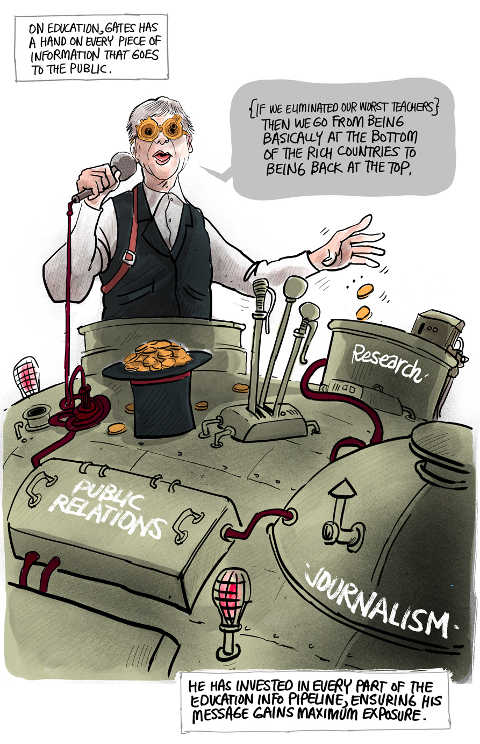
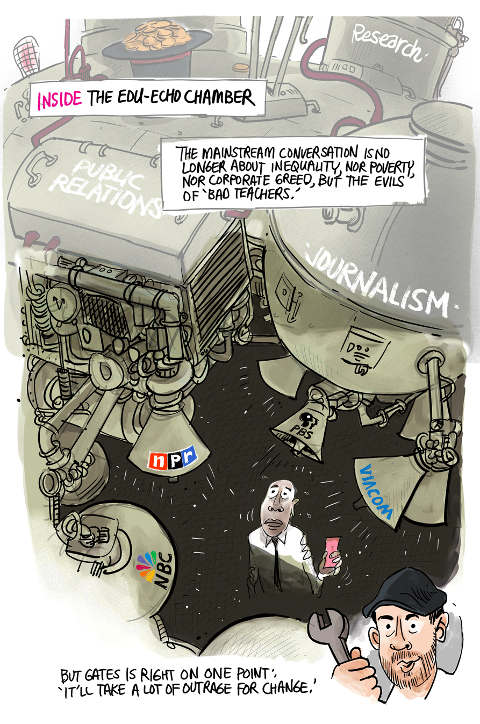



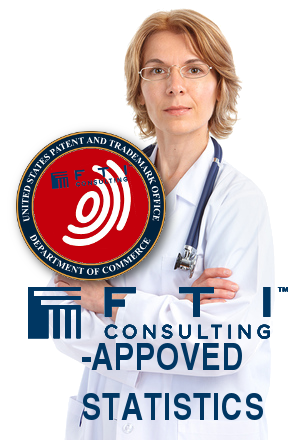
 Summary: What Control Risks and the EPO’s management probably hope staff won’t know and therefore, potentially, self-incriminate
Summary: What Control Risks and the EPO’s management probably hope staff won’t know and therefore, potentially, self-incriminate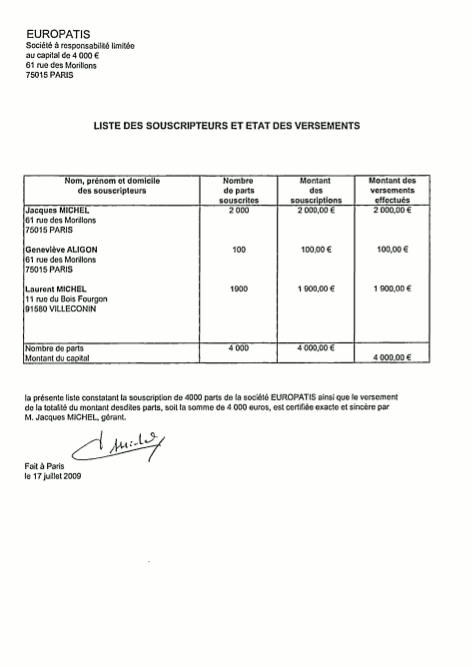
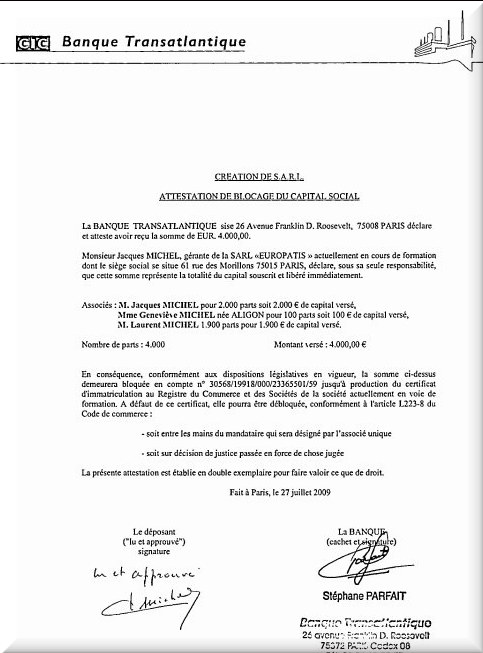
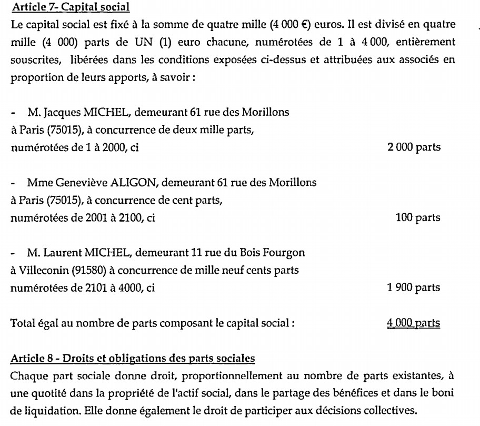
















 Content is available under CC-BY-SA
Content is available under CC-BY-SA